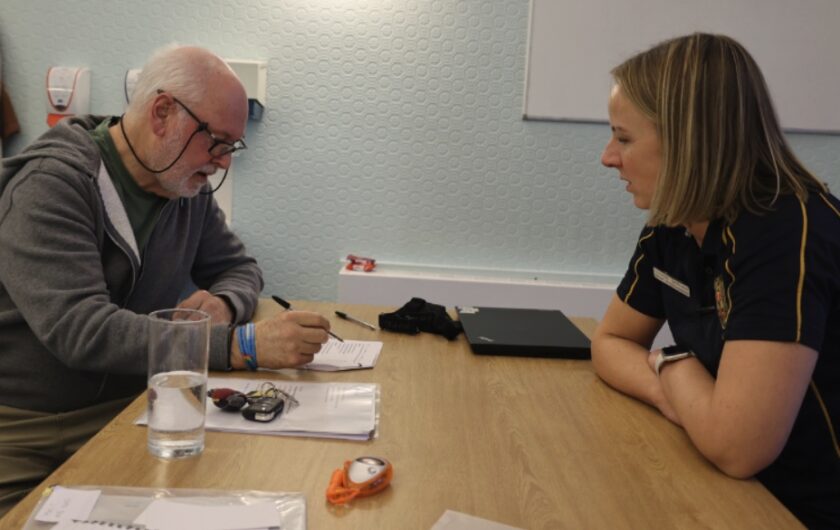Parkinson’s trial in North Wales seeks volunteers for mobility study

A research team in North Wales is calling for volunteers with Parkinson’s disease (PD) to take part in a trial testing a device that may improve walking and reduce the risk of falls.
The study, run by Betsi Cadwaladr University Health Board (BCUHB), will assess whether functional electrical stimulation (FES) can help patients with bradykinesia – a symptom that causes slow movement and walking difficulties.
Already used to treat stroke and multiple sclerosis patients, the FES device stimulates nerves in the leg with electrical impulses, helping muscles move and improving the user’s gait.
The trial, known as STEPS II, is one of only eight in the UK and aims to confirm the device’s effectiveness for Parkinson’s patients.
“Today’s research can change tomorrow’s care”
Julia Roberts, clinical research specialist officer at BCUHB, said: “Our goal within the research department is to ensure today’s research makes a difference to tomorrow’s care.
“Every week, hundreds of people in Wales help with health and social care research. Good research helps us find new treatments and improve services. Our target for BCUHB is to recruit 24 patients into the STEPS II study.”
Participants will be randomly assigned to one of two groups. The first will receive standard care and serve as a control group. The second will receive both FES treatment and their usual care for 18 weeks.
The full trial will last 22 weeks, and those taking part will be reimbursed for their time and expenses.
Nigel’s journey with Parkinson’s
One local resident already signed up for the trial is Nigel Blackwood, who lives in Llandudno. He was diagnosed with Parkinson’s in 2020 after experiencing hand tremors, stiffness and balance issues.
“For me, it was, ‘Oh, that explains what’s wrong with me.’ I now know why I’ve gone stiff, why I can’t bend so much, and why my balance isn’t what it used to be,” said Nigel.
Although Parkinson’s has affected his strength and ability to carry out DIY tasks, Nigel has found support through a local group in Llandudno Junction, where members share experiences and advice on living with the condition.
Nigel was introduced to the trial by his physiotherapist and hopes it will help others.
“I’ve tried various things that didn’t really work for me. Parkinson’s is a spectrum condition – there isn’t going to be one silver bullet. You have to find different ways to manage it.
“I’m hoping the FES device will help me walk a bit better. It might find answers to some people’s problems, which is why I wanted to get involved.”
A broader goal
Parkinson’s is caused by the loss of dopamine-producing nerve cells in the brain, leading to symptoms such as tremors, stiffness, and bradykinesia. While there is no cure, treatments like physiotherapy, medication, and surgery can help manage symptoms and maintain quality of life.
The STEPS II trial will explore whether FES could become a new tool for improving mobility and boosting confidence in those affected.
Interested patients with Parkinson’s who meet the criteria can contact Claire Watkins at [email protected] or Julia Roberts at [email protected] for further information.
Only eight sites across the UK are participating in the study, with a goal of recruiting 234 patients. Alongside BCUHB, the participating centres include hospitals in Swansea, Leeds, Birmingham, and Salisbury.
Spotted something? Got a story? Email: [email protected]
Latest News
